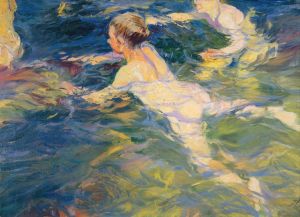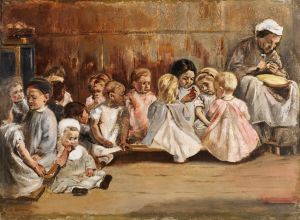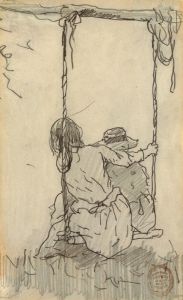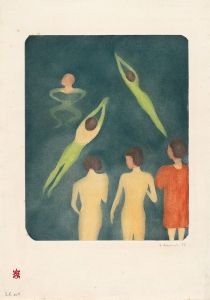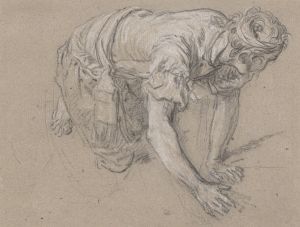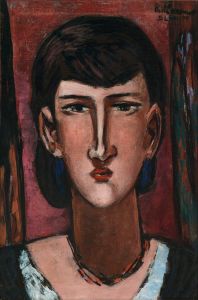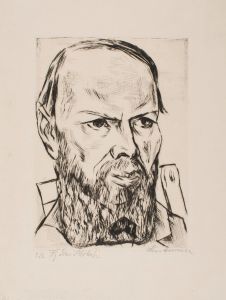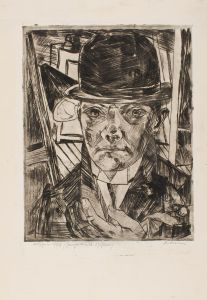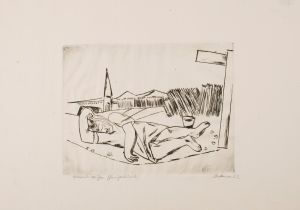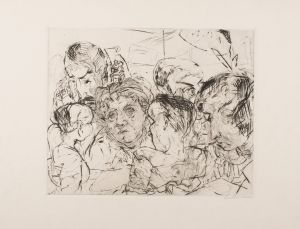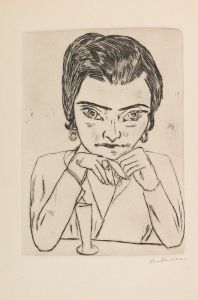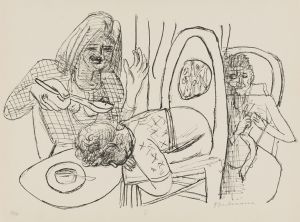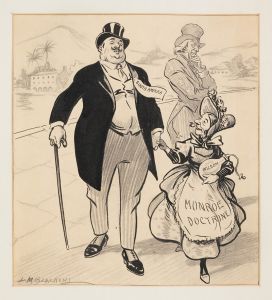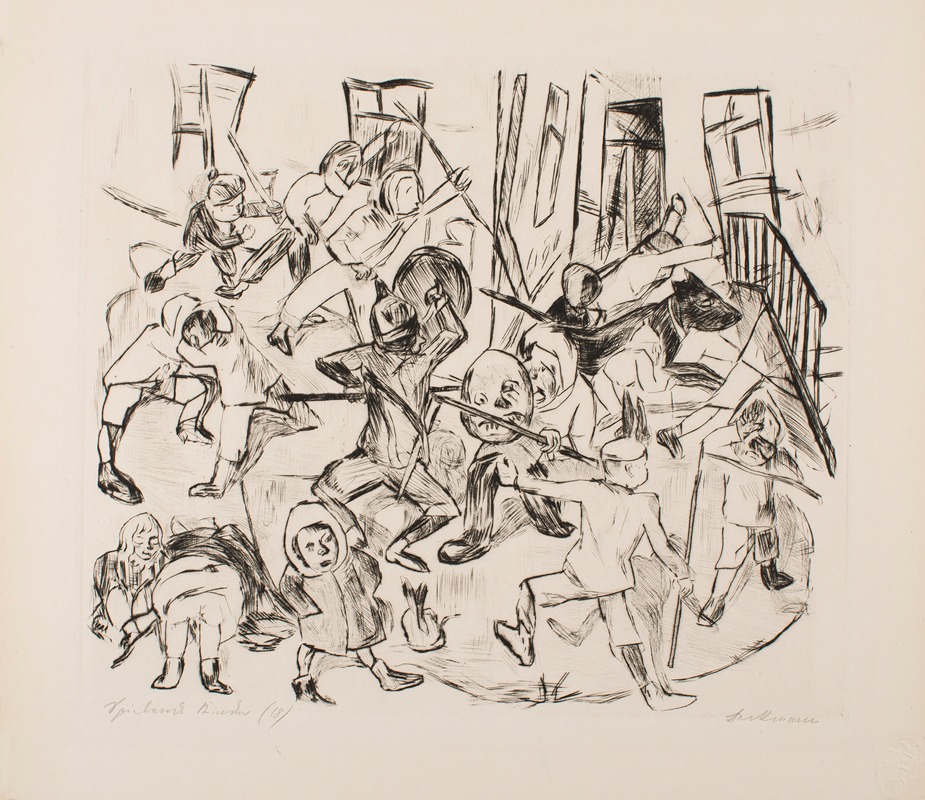
Playing Children, Broad Format, plate 16 from the portfolio ‘Faces’
A hand-painted replica of Max Beckmann’s masterpiece Playing Children, Broad Format, plate 16 from the portfolio ‘Faces’, meticulously crafted by professional artists to capture the true essence of the original. Each piece is created with museum-quality canvas and rare mineral pigments, carefully painted by experienced artists with delicate brushstrokes and rich, layered colors to perfectly recreate the texture of the original artwork. Unlike machine-printed reproductions, this hand-painted version brings the painting to life, infused with the artist’s emotions and skill in every stroke. Whether for personal collection or home decoration, it instantly elevates the artistic atmosphere of any space.
Max Beckmann was a prominent German painter, draftsman, printmaker, and writer, known for his distinctive style that combined elements of Expressionism and New Objectivity. His work often reflected the tumultuous socio-political landscape of early 20th-century Europe, and he is celebrated for his ability to convey complex human emotions and experiences through his art.
"Playing Children, Broad Format, plate 16 from the portfolio ‘Faces’" is one of Beckmann's notable works, created during a period when he was deeply engaged in exploring the human condition through various artistic mediums. This piece is part of a larger portfolio titled "Faces," which consists of a series of prints that Beckmann produced to capture the diverse expressions and personalities of people.
The portfolio "Faces" was created during a time when Beckmann was experimenting with printmaking, a medium that allowed him to reach a broader audience and explore new artistic techniques. The series is characterized by its focus on the human face and form, capturing a wide range of emotions and social interactions. Beckmann's interest in the human psyche is evident in these works, as he delves into themes of identity, society, and the complexities of human relationships.
"Playing Children" specifically depicts a scene of children engaged in play, a subject that Beckmann approached with both a sense of innocence and a deeper, sometimes darker, understanding of human nature. The broad format of the piece suggests a panoramic view, inviting the viewer to immerse themselves in the scene and consider the interactions and dynamics at play. Beckmann's use of line and form in this piece is typical of his style, characterized by bold outlines and a strong sense of composition.
The creation of this work can be situated within the broader context of Beckmann's career, which was marked by significant historical events, including World War I and the rise of the Nazi regime in Germany. These events had a profound impact on Beckmann's life and work, influencing his themes and the emotional intensity of his art. Despite the challenges he faced, including being labeled a "degenerate artist" by the Nazis, Beckmann continued to produce art that challenged and provoked thought.
"Playing Children" and the "Faces" portfolio as a whole reflect Beckmann's enduring interest in the human experience, capturing moments of everyday life with a depth that encourages reflection and introspection. His work remains influential, offering insights into the complexities of human nature and the social realities of his time.
Max Beckmann's legacy as an artist is marked by his ability to convey powerful narratives through his art, and "Playing Children" is a testament to his skill in capturing the essence of human interaction. Through this piece, Beckmann invites viewers to consider the innocence of childhood against the backdrop of a world that is often fraught with tension and uncertainty.





